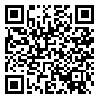Volume 7, Issue 1 (3-2019)
J Surg Trauma 2019, 7(1): 26-33 |
Back to browse issues page
Download citation:
BibTeX | RIS | EndNote | Medlars | ProCite | Reference Manager | RefWorks
Send citation to:



BibTeX | RIS | EndNote | Medlars | ProCite | Reference Manager | RefWorks
Send citation to:
Akhlaghi M R, Salehi A, Mortazavi A A, Shafieion M, Ansari R. Impact of practice on goat’s eye on surgical skill development in sophomore ophthalmology residents. J Surg Trauma 2019; 7 (1) :26-33
URL: http://jsurgery.bums.ac.ir/article-1-171-en.html
URL: http://jsurgery.bums.ac.ir/article-1-171-en.html
(MS), Medical Education, Responsible For Educational Accreditation and Responsible For EDO, Faiz Medical Education Hospital, Isfahan University of Medical Sciences, Isfahan, Iran
Abstract: (5743 Views)
- Introduction: Acquisition of clinical and practical skills is one of the highly critical and sensitive aspects of medical education, particularly in the areas related to surgical specialties. Moreover, one of the most important procedural strategies regarding educational medicine is the acquisition of practical skills in various psychological domains. Regarding this, the present study aimed to delineate the effects of practicing on goat’s eye for the residents expected to perform their first surgery on human eyes.
- Methods: This applied study was conducted on all the sophomore residents (n=8) of the Ophthalmology Department of Isfahan University of Medical Sciences, Isfahan, Iran, using a pre-experimental design. The procedures were instructed to the residents through three stages in the wet lab according to a protocol. After the completion of the second stage, the residents gained their first experience of performing surgery on human eyes in the operating room under the supervision of junior and senior residents and the attending specialist. At this stage, in case the further experience was required, the resident could start practicing on goat’s eyes in the wet lab upon prior coordination. At the third stage, the residents received instructions and practiced more advanced techniques. After this stage and upon the entrance of the residents to the operating room, the 3rd and 4th year residents and the attending specialists were surveyed regarding the performance of the 2nd year residents in nine fields in accordance with the aims of the study. In addition, the 2nd year residents completed a self-evaluation checklist. The data were analyzed in SPSS software, (version 16).
- Results: The results revealed that practicing before surgery on the human eye resulted in the reduction of surgical errors (45%), surgical speed and proficiency (20%), and stress and hand tremors (35%) during the first surgical experiences. According to the 3rd and 4th year residents, the practices and instructions provided before the wet lab had a positive effect on decreasing the levels of stress and surgical error during the first surgical experiences of the 2nd year residents. The attending specialists believed that the wet lab experience could have a positive effect on all aspects of surgery, including mental, emotional, and practical factors. Nonetheless, some 3rd and 4th-year residents believed that the wet lab could not provide circumstances identical to the conditions experienced in the operating room. Therefore, the effects of practicing in the wet lab on surgical speed, proficiency, stress, and surgical error were believed to be less significant.
- Conclusions: Overall, the study showed that repeated practice sessions on goat’s eye in the wet lab under the supervision of 3rd and 4th-year residents and attending specialists could not only have positive effects on some practical, mental, and attitudinal indices but also improve the knowledge of the residents.
Type of Study: Research |
Subject:
Educational
Received: 2018/11/12 | Accepted: 2019/05/25 | Published: 2020/03/4
Received: 2018/11/12 | Accepted: 2019/05/25 | Published: 2020/03/4
Send email to the article author
| Rights and permissions | |
 |
This work is licensed under a Creative Commons Attribution-NonCommercial 4.0 International License. |








